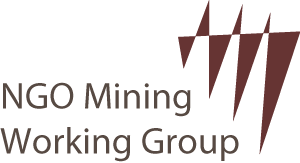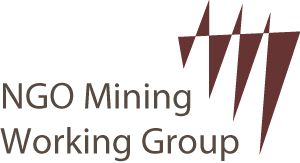Statements & Interventions - Greek Orthodox Archdiocesan Council (GOAC) at the UN
STATEMENTS & INTERVENTIONS
CSW66 Girls Statement
The Girl Delegates of the Greek Orthodox Archdiocese helped draft this
Girls Statement, which outlines ways that the climate crisis effects girls,
and the demands girls have on member states to address these issues.
Bővebben »
Bővebben »
 Statement to the June 2017 Oceans Conference organized by the President of the United Nations General Assembly
Statement to the June 2017 Oceans Conference organized by the President of the United Nations General Assembly
Statement to the June 2017 Oceans Conference organized by the President of
the United Nations General Assembly
Bővebben »
Bővebben »
 Oral Intervention on the Draft Outcome Document For19 September 2016 High-Level Meeting to Address Large Movements of Refugees and Migrants, Rev. 1 (12 July 2016) and the Global Compact on Refugees, Rev. 1 (15 July 2016)
Oral Intervention on the Draft Outcome Document For19 September 2016 High-Level Meeting to Address Large Movements of Refugees and Migrants, Rev. 1 (12 July 2016) and the Global Compact on Refugees, Rev. 1 (15 July 2016)
Intervention on the Draft Outcome Document For19 September 2016 High-Level
Meeting to Address Large Movements of Refugees and Migrants, Rev. 1 (12
July 2016) and the Global Compact on Refugees, Rev. 1 (15 July 2016)
Bővebben »
Bővebben »
 2016 Statement Addressing Gender Equality, Development, and Peace
2016 Statement Addressing Gender Equality, Development, and Peace
2016 Statement for the 60th UN Commission on the Status of Women addressing
gender equality, development, and peace.
Bővebben »
Bővebben »
 2016 Statement Addressing Gender Discrimination in the Workplace
2016 Statement Addressing Gender Discrimination in the Workplace
Statement for the 60th UN Commission on the Status of Women addressing
gender discrimination in the workplace
Bővebben »
Bővebben »
 Oral Intervention to the 54th Session of the United Nations Commission for Social Development
Oral Intervention to the 54th Session of the United Nations Commission for Social Development
Poverty and the Family Oral Intervention to the 54th Session of the
United Nations Commission for Social Development 12 február 2016 United
Nations Commission for Social Development Fifty-Fourth Session Item 3(b) of
the Provisional Agenda Mr. Chairman, The Greek Orthodox Archdiocesan
Council appreciates the opportunity to address the Commission on Social
Development on the issue of poverty and the family. The Secretary General
has declared that the defining challenge of our time is to close the gap
between our determination to ensure a life of dignity for all on the one
hand and the reality of persisting poverty and deepening inequality on the
other. The Universal Declaration of Human Rights recognizes the family as
the basic unity of society entitled to protection by society and the State.
Several General Assembly resolutions have emphasized that the family be
strengthened and receive comprehensive support. Families living in poverty
experience lack of income, hunger and malnutrition, ill-health, limited
access to education, inadequate housing, unsafe environment and social
exclusion. According to a report from the National Center for Children in
Poverty at Columbia University, poverty stymies performance of children in
school and negatively affects their mental and physical health. Poor
children are more likely to suffer a higher rate of cognitive delays and
development disorders. Absent interventions, these children face difficulty
in transcending the disadvantage of their early lives and as adults are
likely to perpetuate a cycle of poverty that can consume generations.
Falling family incomes force parents to make cuts in education expenditures
for their children. Family centered policies by governments should be
advanced to help families come out of poverty. For years Brazil has had a
program called BALSA FAMILIA which essentially hands money to mothers
living in poverty. In return they have to ensure that their children go to
school and avail themselves of health care services. This has been
enormously effective in reducing poverty. Also, family focused society
transfer programs, including cash transfers, can shield families, improve
child nutrition, school attendance and reduce child labor. Governments
should ensure universal access to social services for families in poverty,
provide quality education and health services and extend the scope of
social protection programs. Economic empowerment is critical for poverty
eradication. All family members who are unemployed should have access to
education, job training, job retraining, as well as access to technology
and technical assistance. Micro-finance initiatives have been successful in
addressing people living in poverty especially women who wish to start
small businesses. Rural development and sustainable agriculture with
special consideration of the smallholder farmer is essential for food
security. The Greek Orthodox Archdiocesan Council, in partnership with
International Orthodox Christian Charities, the Autocephalous Church of
Albania, and Agricultural Department of the University of Maryland has been
undertaking a regional effort to help rural farmers increase their income
and improve sustainable access to food for families. Farmers receive
raining on insects and diseases that affect late season vegetables and
instruction is given on how to conduct tests to measure soil texture. Field
schools held in the region have given farmers the opportunity to discuss
problems they face. The proper preparation and care of a seed bed,
transplanting measures for saplings, tomato production in greenhouses and
technical information for mushrooms, herbs, onions, lettuce, and garlic are
taught. Farmers learn new methods to increase farm income and expand market
opportunities. This project helps farmers to not only be more productive
but also supplies more food to the local communities. The same program has
been conducted in Kosovo and Montenegro. Mr. Chairman, by 2030, we must
double the agricultural productivity and incomes of small-scale food
producers, particularly, women, indigenous people, and family farmers.
Share Facebook Twitter Google + Email
Bővebben »
Bővebben »
 Oral Intervention on the naming of the Human Right to Water and Sanitation in the political declaration of the 2030 Agenda for Sustainable Development
Oral Intervention on the naming of the Human Right to Water and Sanitation in the political declaration of the 2030 Agenda for Sustainable Development
Oral Intervention on the naming of the Human Right to Water and Sanitation
in the political declaration of the 2030 Agenda for Sustainable Development
Bővebben »
Bővebben »
 Oral Intervention on Human Rights and Corporate Accountability
Oral Intervention on Human Rights and Corporate Accountability
Oral Intervention on Human Rights and Corporate Accountability
Bővebben »
Bővebben »
 2015 Civil Society Statement on People-Centered Means of Implementation: Focus on economic justice aspects of MOI and connections to the AAAA
2015 Civil Society Statement on People-Centered Means of Implementation: Focus on economic justice aspects of MOI and connections to the AAAA
2015 Civil Society Statement on People-Centered Means of Implementation:
Focus on economic justice aspects of MOI and connections to the AAAA
Bővebben »
Bővebben »
 Open Letter to Ecumenical Patriarch Bartholomew regarding the Human Right to Water and Sanitation
Open Letter to Ecumenical Patriarch Bartholomew regarding the Human Right to Water and Sanitation
Open Letter to Ecumenical Patriarch Bartholomew regarding the Human Right
to Water and Sanitation
Bővebben »
Bővebben »
